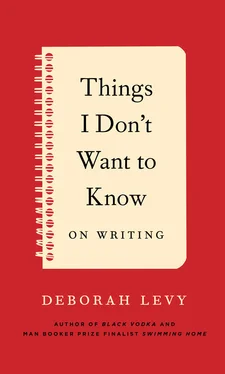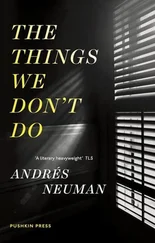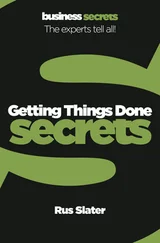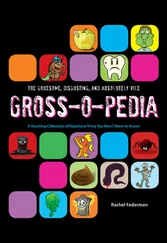When Sam went to the park he collected a handful of stompies, cigarette butts that had been ground out on the grass. He saved them in his pockets until he got home and then put them in a little glass jar. Sam was convinced that all dads liked stompies. Maria put on her best dress, the dress she wore when she went home to her house where her real children lived. But before she put on her shoes, she sat down and instructed me to rub Vaseline into the dry skin on her heels.
‘Do you know what they found in the Zoo Lake?’
‘What?’
‘A human head. Put some Vaseline on this leg too.’
‘A child’s head?’
‘No. A man’s head.’
‘Is it Dad?’
‘No. Your father is on his way home.’
I knew my father would be arriving with Mom in a car from Pretoria Central Prison. But I was not sure what he looked like now. To be certain of recognizing him, I held in my lap the black and white photograph my mother had propped up by the telephone in the dark hallway. The photograph that for nearly five years had represented the father who sent his love to me in letters and messages. Kisses and hugs, XXXXX OOOOO written in biro on prison note paper. Sam and I climbed up the two stone gate posts outside their house and I held the photo in my lap, glancing at it every now and again just to make sure. The gateposts were six foot high and looked straight out over the road. Every time a car went past the house we waved. Our hands had been scrubbed clean with a brand new bar of Lux.
For some reason, I thought my father was going to return home in a white car. The same car he was taken away in. So every white car made my heart thump under the white daisies stitched on my dress. The panic of my father not turning up made everything very slow. Clouds moved across the sky slowly. People walked on the pavements slowly. Dogs barked slowly.
A small red car turned left at the golf course and swerved into their road. I stiffened my toes inside my patent shiny shoes and waited. The door opened and a man jumped out and ran towards us. He did not even wait for the car to stop. We knew who it was and I did not bother to look at the photo lying in my lap. It took us a while to get down from the very high gate posts. Dad was waiting for us but we couldn’t get down. Now we were all legs and arms and trying to slide down and the man who was our father grabbed our legs and then lifted us in to his arms. He was wearing the shirt we had admired when Mom laid them out in the living room.
Dad hugged us and we didn’t know what to say. And then he hugged us again and put us down on the pavement where moss grew in the cracks. We walked through the gate and into the kitchen. When Maria saw him she embraced him and I heard him say the word ‘Thandiwe’. Mom poured three glasses of wine, one for Dad, one for Maria and one for her. They raised their glasses and we all looked at Dad. He took a tiny sip, paused and put the glass down again.
‘I haven’t seen a glass for five years.’
My father was thin and his face was pale. He sat down at the table and sipped his wine again. And then he picked up a plate and ran his finger over it. ‘I have forgotten the feel of porcelain. I’ll have to learn how to handle a cup again and to manipulate a fork.’
Dad put down the white china plate he has been examining for the last five minutes and stood up.
‘Where is the garden?’ He cocked his head to one side and smiled at me. ‘I want to see the snowman.’
There was no snowman in the garden. Sam wrapped the ends of the new white linen tablecloth around his small wrist and looked down at the floor. Mom tried to remove a fly from the window with the back of an envelope.
‘Take your father into the garden.’ Maria waved her hands at me.
My father is standing in the garden. His face is pale grey like dirty snow. Only his eyes move. His arms hang stiffly by his sides. Dad is back, so very still and silent, standing in the garden. He looks like he has been hurt in some way. Very deep inside him.
‘Daddy, the cat died while you were away.’
He squeezes my hand with his cold fingers.
‘It’s lovely to be called Daddy again.’
Two months later we left South Africa for the United Kingdom. When the ship pulled away from Port Elizabeth docks in the Eastern Cape province, the passengers were given rolls of toilet paper to unravel from the height of the deck. The other end was held by friends and family standing on dry land waving goodbye. As the ship edged out to sea, Melissa who had come to see me off held the other end of my toilet roll. The ship’s hooter wailed into the blue sky. I could see her jumping and shouting but I couldn’t hear her. Her words got scrambled in the wind, drowned by the roaring of the tug boats as they pushed the ship out towards England. Melissa was the first person in my life who had encouraged me to speak up. With her blue painted-on eyes and blonde beehive that was nearly as tall as I was, she was spirited and brave and she was making the best of her lot. I couldn’t hear her but I knew her words were to do with saying things out loud, owning up to the things I wished for, being in the world and not defeated by it.
I would like to forget the image of the ship’s crane at Southampton docks when it lifted into the sky, the three wooden trunks which held all that my family owned. There is only one memory I want to preserve. It is Maria, who is also Zama, sipping condensed milk on the steps of the doep at night. The African nights were warm. The stars were bright. I loved Maria but I’m not sure she loved me back. Politics and poverty had separated her from her own children and she was exhausted by the white children in her care, by everyone and everything in her care. At the end of the day, away from the people who stole her life’s energy and made her tired, she had found a place to rest, momentarily, from myths about her character and her purpose in life.
I don’t want to know about my other memories of South Africa. When I arrived in the UK, what I wanted were new memories.
In the UK greasy spoons are also referred to as ‘working men’s cafés’, which in the South is often colloquially referred to as a ‘caff’. . The typical working men’s café serves mainly fried or grilled food, such as fried eggs, bacon, black pudding, bubble and squeak, sausages, mushrooms and chips. These are often accompanied by baked beans.
Wikipedia
ENGLAND 1974
When I was fifteen I wore a black straw hat with square holes punched in the brim and wrote on paper napkins in the greasy spoon by the bus station. I had a vague idea this was how writers were supposed to behave because I had read books about poets and philosophers drinking espresso in French cafés while they wrote about how unhappy they were. There were not many cafés like that in the UK at the time and certainly not in West Finchley. In 1974 the miners were on strike, the conservative government had made a five-day working week a three-day week to save electricity, China had given two black and white pandas (Ching-Ching and Chia-Chia) to the British people — and I was planning my Saturday morning getaway to the greasy spoon as meticulously as a bank heist. These plans were nearly ruined in a big way by a swarm of suicidal bees. A pot of honey — no lid on it of course, nothing had a lid on it in our house — had defied all laws of gravity by falling from its place on the shelf above the washing machine to inside it. Not only was the stainless steel drum now dripping with honey, it was also crawling with delirious, satiated bees that had flown from their nest outside the window and into the washing machine too.
It was now my extra job in the family (we all had jobs on Saturdays) to scrape the bees and honey off the drum with a teaspoon and dispose of the corpses. While I was on my hands and knees, head stuck inside the washing machine, it occurred to me that this was how suicidal women poets ended their life, except they stuck their head into a gas oven. There was something humiliating and religious about kneeling down to remove the bees but I couldn’t summon the energy to work out why because I was in too much pain. At least five of the bees had somehow gathered up enough energy before dying to sting my hand and no one was particularly sympathetic. My mother said, ‘Yes, bees do sting,’ and told me to put my hand under cold water. As an afterthought, she said, ‘In Russia they actually rub bees’ venom onto arthritic joints.’ I tried to bribe my younger brother Sam to do the job for me, but he was too busy blow-drying his hair into a teddy boy quiff. ‘Bees have lots of eyes,’ he shouted over the whir of Mom’s hair dryer, ‘about six each.’ We had both seen a programme on the telly where they showed a close-up of a bee that was apparently a ‘keystone mutualist’ because it pollinated seed-laden fruits in desert communities. The voice-over said that honey bees were the highest form of insect life and that a strong colony flies the equivalent distance to the moon every day. Then they showed men in a field smoking the bees out of a hive. What was I supposed to do? Set fire to the washing machine? Desperate to get out of my life as fast as possible, I tried putting four jasmine joss sticks into the holes of the steel drum and lighting them. I reckoned the smoke would make the keystone mutualists fly out on their own accord without having to scoop them up into my teaspoon. But I knew they were the highest form of insect life and couldn’t be bothered to move. All that happened was ash fell from the joss sticks into the honey and I had to clear burnt-up sticks and ash as well as the bees who obviously thought they were in heaven. I didn’t blame them for not wanting to budge because I could see from their point of view that a washing machine full of honey was more appealing than the grey suburb I was wasting my life in — a desert community without the bonus of sunshine or seed laden fruits.
Читать дальше












